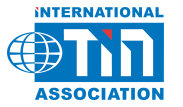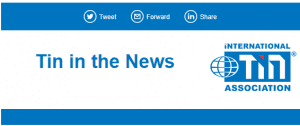Indonesia plans to reverse a rule that would have forced all tin solder exports to trade on a local exchange from January next year, Reuters reported. In a bid to halt illegal mining and give Indonesia greater control over prices, a regulation last August forced all tin ingot shipments to trade via a local exchange (the ICDX) before being exported. Tin solder was exempted until January 2015.
“In the amendment of the tin export regulation, tin solder will be freed from the obligation to be traded at a local commodity exchange because tin solder is not considered as a raw material anymore, but a finished product,” said Thamrin Latuconsina, export director for mining and industrial products. The new regulation would hopefully be approved before the presidential elections on July 9, he told Reuters.
The new tin regulation will also make changes to the standards and specifications for four types of exports – ingot, pure and non ingot, solder and tin in other form – added Bachrul Chairi, director general of foreign trade, who did not elaborate further.
ITRI View: The authorities have recognised that it is not possible to trade a manufactured product on a commodity exchange. From September 2013, when the new export regulation to effect, to May 2014, solder exports have amounted to 9,336 tonnes, or 17% of the total tonnage of tin checked prior to shipment from Indonesia. Other non-ingot tin products have accounted for another 5% of exports. Our guess is that the new standards mentioned by the director general will include specifications that differentiate between genuine finished product for solder end-users and simple extruded tin wire. Although the content and timing of implementation of the revised regulation is uncertain at this time, we currently expect that Indonesia will export around 85,000 tonnes of tin in 2014.


